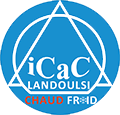In recent years, the video game industry has come under scrutiny for its use of loot boxes, which have been likened to gambling due to their random nature and the potential for players to spend real money to acquire them. This has raised concerns about the impact these practices may have on vulnerable individuals, particularly young people. In response to these concerns, the UK government has taken steps to regulate the use of loot boxes in video games, leading to some companies rebranding their loot boxes as “mystery boxes” to circumvent these regulations.
Loot boxes, also known as gacha or treasure chests, are virtual items that can be purchased with real money or earned through gameplay. They contain a random assortment of in-game items, such as weapons, characters, or cosmetic items, which can provide players with a competitive advantage or enhance their gaming experience. However, the random nature of loot boxes has led to accusations that they operate like gambling, as players are essentially paying for a chance to win valuable items.
In the United Kingdom, loot boxes have come under increased scrutiny due to concerns about their potential to encourage gambling-like behavior in young people. In response to these concerns, the UK government has introduced new regulations aimed at Such protecting consumers from the risks associated with loot boxes. Under these regulations, companies that offer loot boxes in their games are required to disclose the odds of receiving rare items and to prevent players under the age of 18 from purchasing them with real money.
In response to these regulations, some companies have begun rebranding their loot boxes as “mystery boxes” in an attempt to circumvent the new rules. By changing the name of these virtual items, companies are able to avoid disclosing the odds of receiving rare items and can continue to target young players with their offerings. This has raised concerns among consumer advocates and policymakers, who argue that these rebranded loot boxes are essentially the same as their predecessors and should be subject to the same regulations.
The rebranding of loot boxes as “mystery boxes” highlights the challenges faced by regulators in keeping pace with the rapidly evolving video game industry. As technology advances and new forms of in-game content emerge, regulators must constantly adapt their policies to protect consumers from potential harm. In the case of loot boxes, the rebranding tactics used by some companies demonstrate the need for regulators to remain vigilant and to continue to monitor the industry for compliance with existing regulations.
In conclusion, the rebranding of loot boxes as “mystery boxes” under UK law raises important questions about the regulation of in-game purchases and the protection of consumers, particularly young people, from the risks associated with gambling-like behavior. As the video game industry continues to evolve, regulators must adapt their policies to address new forms of in-game content and to ensure that companies comply with existing regulations. By staying informed and engaged, policymakers can work to create a safer and more transparent gaming environment for all players.
- The controversy surrounding loot boxes in video games
- The impact of loot boxes on vulnerable individuals
- Regulation of loot boxes in the UK
- The rebranding of loot boxes as “mystery boxes”
- Challenges faced by regulators in the video game industry

